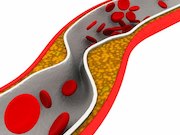
No direct evidence, limited indirect evidence for benefits of PAD screening in asymptomatic population
WEDNESDAY, July 11, 2018 (HealthDay News) — The U.S. Preventive Services Task Force (USPSTF) concludes that there is currently insufficient evidence to assess the benefits and harms of screening for peripheral artery disease (PAD) with the ankle branchial index (ABI) in asymptomatic adults. These findings form the basis of a final recommendation statement published in the July 10 issue of the Journal of the American Medical Association.
Janelle M. Guirguis-Blake, M.D., from the University of Washington in Tacoma, and colleagues conducted a systematic review on the diagnostic accuracy of ABI screening for PAD, and the benefits and harms of treatment of screen-detected PAD. Five studies with 5,864 participants that assessed the indirect evidence for the benefits and harms of screening and treatment were included.
The researchers found that there was no direct evidence and limited indirect evidence on the benefits of PAD screening in unselected or asymptomatic populations. Few studies addressed the benefits of treating screen-detected PAD patients. Based on these findings, the USPSTF concludes that the current evidence is inadequate for assessing the balance of benefits and harms of PAD screening with the ABI in asymptomatic adults (I statement).
“At this time, there is not enough evidence to recommend for or against using the ABI as a screening tool,” Task Force member Seth Landefeld, M.D., said in a statement.
Copyright © 2018 HealthDay. All rights reserved.







